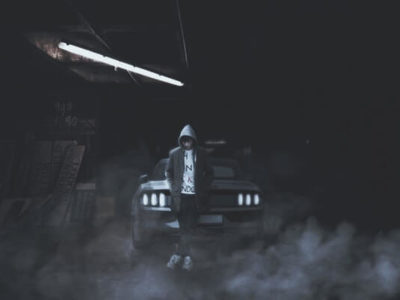Picture this: I’m driving home after a normal day on campus, only to get recklessly side swept by nature. It could have happened on any day. But today, my number was up and I fit the bill for the grim reaper. The way I crashed, the force, the rain, the damage. Everything was so meticulously perfect for me to meet my maker. The police report wrote it as a “violation of the California Basic Speed Law,” where I drove too fast for the conditions to permit. Sorry, I was driving five below the speed limit and suddenly hydroplaned merging onto the I-8 West. Can’t control the weather, that’s someone else’s job.
The photos I later saw made my stomach hurt. That could have been me crushed into pulpy little pieces on the fender. That could have been me enjoying a warm sauna between the engine and the airbags.
I know. If anything was the slightest bit off when I had crashed— when I lost control of the wheel or when the road greedily slid a wet blanket under my uncertain wheels— I could have been killed. Everything was aligned for me to die, but I didn’t.
And I felt terrible about that. I didn’t know why I was spared when so many other collisions end in causalities. I felt guilty that I was able to walk away after damaging my car so badly it could no longer run.
After the crash, I sat on the side of the road for a long time, waiting for my parents to pick me up like a child at daycare. I felt numb. Paired with the cold and the complete totality of the last five minutes, I was in shock. Accidents like this happen in dramatic chick flicks or action movies with sports cars, as a plot device for an adventure story. This doesn’t happen in real life with real people.
But it can. The one thing the movies got right? The slow motion. Two timeless moments sandwiched a black hole. Right before the accident and right after felt like an eternity: slow movements, ragged gasps, blinking back into existence. The crash itself seemed so ethereal.
Vaguely, I thought of the way adrenaline pumps through the human body during life-or-death situations. We don’t really feel until much much later. Looking at my hands, they weren’t shaking but they felt cold. I felt cold. The rain hadn’t stopped when I did. Its icy tendrils continued down my collar.
My clearest moment after the crash gave me a revelation: What if it wasn’t only me in the car? I’m responsible for so many lives when I drive, yet here I am, broken, now sobbing on the side of the road with a car that will never rumble to life to pick up ice cream or rush me to school for an early class.
Through tears and the suffocating panic in my chest, I watched cars zoom and swerve and continue on their way. My car looked like a steaming wreck that miraculously fishtailed onto the shoulder. And the truck I hit (a tow truck, how beautifully ironic) bravely waited with me. Nobody stopped or slowed down. I know the world had kept on spinning, but in that moment I stalled.
I watched my life moving. So many lives passing in front of me accelerating to 65mph, but there I stood—at a standstill. Appreciating their movement? Enjoying my stillness? I realized that it didn’t really matter. In a pivotal Rick and Morty moment I felt minuscule. If I had died here everybody would still move forward. The cars in passing wouldn’t know what happened, they would just assume. The nameless faces would forever be nameless.
And I would pass without anything to say for myself.
Nihilistic or existentialist, I felt just as broken as my steaming car. That’s right. If I did die. Nobody would care. It would just be me, floating off into a void.
I never wanted to prove myself wrong more than in that moment. I never wanted to go running or living or swimming or dancing (I don’t dance) as much as I did after the crash because I was alive. In that moment I felt so afraid of living but I didn’t want to be a bystander, waiting for the rain to pass or the car to slow.



















